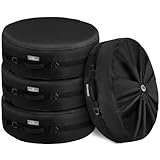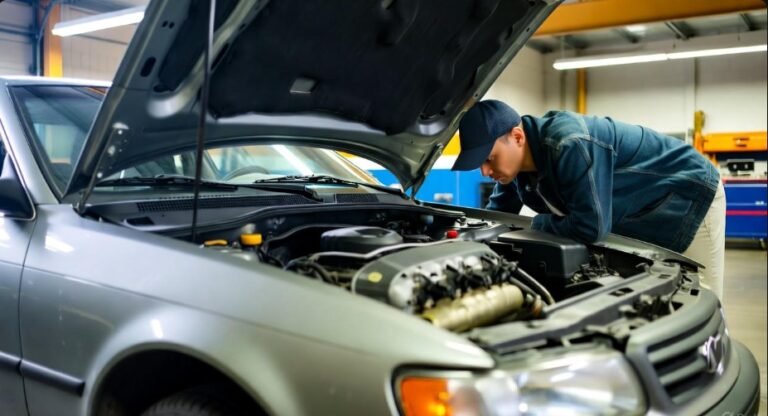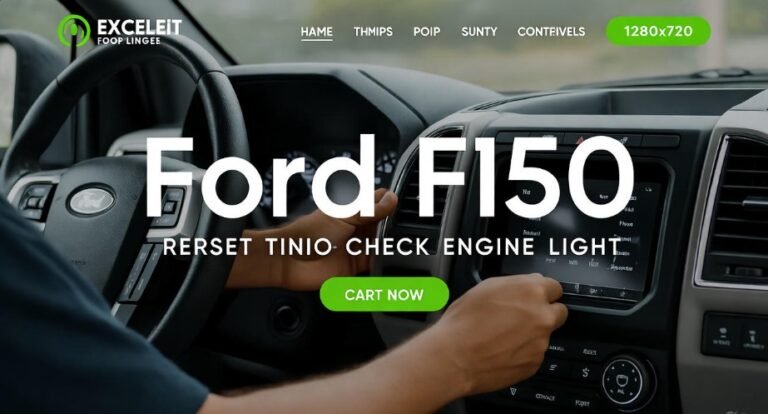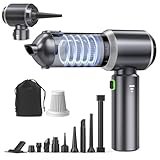Can I Get My Car Inspected in Another State? Yes, Here’s How!
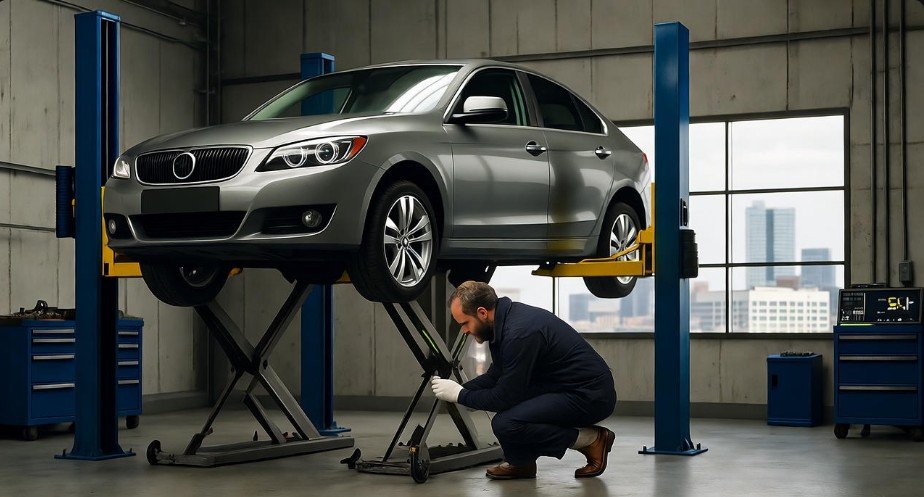
Getting your car inspected is one of those routine tasks that most of us don’t give a second thought—until we try to do it somewhere unusual. Maybe you live near a state border, or perhaps you’ve temporarily relocated for work or school. Suddenly, the question arises: can I get my car inspected in another state? The short answer is: yes, but the details matter. Each state has its own regulations, standards, and reciprocity agreements, which means what works in one state may not work in another.
In this guide, we’ll walk you through everything you need to know about getting your car inspected in a different state. From residency requirements to reciprocity agreements, inspection standards, and cost considerations, we’ll cover it all. By the end of this article, you’ll know exactly what steps to take, how to avoid legal pitfalls, and how to save time and money in the process.
In This Article
- 1 Understanding Vehicle Inspection Reciprocity
- 2 Key Factors That Affect Out-of-State Inspections
- 3 What to Do If Your State Doesn’t Have Reciprocity
- 4 Step-by-Step Guide to Getting Inspected Out-of-State
- 5 Pros and Cons of Out-of-State Vehicle Inspections
- 6 Common FAQs About Out-of-State Car Inspections
- 6.1 1. Can I Get My Car Inspected in Another State?
- 6.2 2. What Happens If My Car Fails Inspection in Another State?
- 6.3 3. Do I Have to Get My Car Inspected if I Move to Another State?
- 6.4 4. Are There Any Exemptions or Waivers for Out-of-State Inspections?
- 6.5 5. Will Out-of-State Inspections Be Accepted by My Home State?
- 6.6 6. How Much Does an Out-of-State Inspection Cost?
- 6.7 7. Can I Use a Temporary Inspection Sticker from Another State?
- 7 Real-Life Tips for Getting Your Car Inspected Out-of-State
- 8 Exceptions and Special Circumstances
- 9 How Reciprocity Agreements Make Life Easier
- 10 Key Takeaways
- 11 Conclusion
Understanding Vehicle Inspection Reciprocity
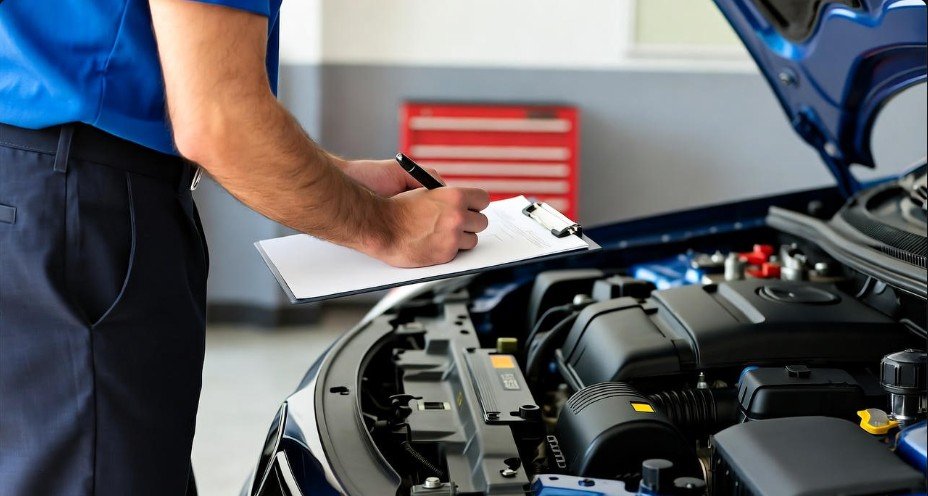
One of the first things to understand is reciprocity agreements. Some states allow vehicles to be inspected in another state and still meet their own requirements. These agreements are particularly helpful for people who live near state lines or frequently travel between states for work or personal reasons.
Think of reciprocity as a handshake between states: they agree to trust each other’s inspection standards. For instance, if you live in State A but work in State B, and both states have a reciprocity agreement, you might be able to get your vehicle inspected in State B without violating the laws of your home state. This not only saves time but also reduces unnecessary travel for inspections, especially if your home state’s inspection centers are far away.
To find out whether your state has reciprocity agreements, check your local Department of Motor Vehicles (DMV) website. Most DMVs provide detailed tables showing which states honor inspections from others. A quick phone call can also save you a lot of hassle—DMV staff are usually quite knowledgeable about reciprocity rules.
Key Factors That Affect Out-of-State Inspections
Even with reciprocity, several factors determine whether your car can be inspected in another state. Ignoring these can lead to failed inspections or legal issues.
1. Residency Requirements
Some states require vehicles to be registered locally before they can be inspected. If you’re not a resident, your car might be ineligible for inspection in that state. For example, temporary residents or students might have exceptions, but it’s crucial to confirm with the DMV.
2. Inspection Standards and Regulations
Each state sets its own safety and emissions standards. Your car must meet these to pass inspection. A vehicle that passes in one state might fail in another if the regulations differ. This is especially true for emissions testing, where stricter environmental laws can affect whether your car passes.
3. Cost and Availability
Inspection fees can vary widely. Some states charge a flat rate, while others have variable pricing depending on vehicle type. Additionally, some inspection centers may require appointments, while others accept walk-ins. Planning ahead ensures that you won’t waste a trip.
4. Legal Implications
Getting your car inspected in another state does not exempt you from your home state’s laws. Even if your car passes an inspection elsewhere, you still need to comply with your home state’s registration and inspection rules. Failing to do so could result in fines or penalties.
What to Do If Your State Doesn’t Have Reciprocity
Not every state has agreements with its neighbors. If your home state doesn’t, there are still ways to navigate inspections without breaking the law.
-
Permanent relocation: If you move to a new state, you’ll likely need to register your vehicle there and follow local inspection requirements.
-
Temporary residence or student status: Some states allow temporary residents to keep their home-state registration and inspections. However, confirm specific rules with the DMV.
-
Consult the DMV: When in doubt, speaking directly with the DMV in the state where you plan to get inspected can clarify requirements and exceptions.
Sometimes, a quick phone call or email exchange with DMV officials can save days of wasted effort and prevent fines for non-compliance.
Step-by-Step Guide to Getting Inspected Out-of-State
Getting your car inspected in another state doesn’t have to be complicated if you follow these steps:
-
Check reciprocity: Verify whether your home state recognizes inspections from your target state.
-
Review inspection standards: Ensure your vehicle meets the local safety and emissions requirements.
-
Confirm eligibility: Check residency rules and temporary exemptions.
-
Schedule an appointment: Some states require prior bookings, especially for emissions testing.
-
Prepare your documents: Bring your registration, insurance, and any inspection forms required by the state.
-
Complete the inspection: Visit a certified inspection center and ensure you receive proper documentation.
-
File paperwork with your home state (if required): Some states require you to submit out-of-state inspection proof.
By following these steps, you can avoid surprises and ensure your vehicle remains compliant, even when inspected far from home.
Pros and Cons of Out-of-State Vehicle Inspections
Like any legal or procedural workaround, getting your car inspected in another state has advantages and disadvantages.
Pros:
-
Convenience: Saves time if you live near a state border or travel frequently.
-
Flexibility: Useful for students or temporary workers relocating for short-term assignments.
-
Efficiency: May reduce the need for multiple inspections.
Cons:
-
Potential incompatibility: Different inspection standards may require adjustments to your vehicle.
-
Residency issues: Some states may not allow inspections for non-residents.
-
Legal risk: Failing to comply with home state requirements could result in fines or penalties.
Table: Comparison of In-State vs Out-of-State Inspection
| Factor | In-State Inspection | Out-of-State Inspection |
|---|---|---|
| Legality | Fully compliant | May require reciprocity or special documentation |
| Cost | Standard fees | Varies; may be higher |
| Convenience | Moderate | High for border residents |
| Standards | Matches local requirements | Must check for compatibility
|
Common FAQs About Out-of-State Car Inspections
Navigating vehicle inspections in another state can feel overwhelming. To help, here are the answers to some of the most frequently asked questions.
1. Can I Get My Car Inspected in Another State?
Yes, you can, but it’s not always straightforward. Each state has its own inspection requirements, and some require residency or reciprocity agreements. Always check with the state’s DMV to ensure your vehicle qualifies.
2. What Happens If My Car Fails Inspection in Another State?
If your car fails inspection, most states give you a window of time—often 30 to 60 days—to make necessary repairs and return for a re-inspection. Make sure to get a clear understanding of the re-inspection rules in the state where you were inspected to avoid penalties.
3. Do I Have to Get My Car Inspected if I Move to Another State?
Yes. Moving to another state usually means you must register your vehicle locally and meet that state’s inspection standards. This ensures your car complies with both safety and environmental regulations in your new state.
4. Are There Any Exemptions or Waivers for Out-of-State Inspections?
Some states provide exemptions for temporary residents, students, or people whose vehicles are only temporarily located in that state. These exemptions vary widely, so it’s essential to contact the local DMV for the most accurate information.
5. Will Out-of-State Inspections Be Accepted by My Home State?
Only if your home state has a reciprocity agreement with the state where the inspection occurred. Without such an agreement, you may still need to complete an inspection at home, even if your car passed elsewhere.
6. How Much Does an Out-of-State Inspection Cost?
Costs vary depending on the state, vehicle type, and type of inspection (safety, emissions, or both). Some states charge a flat fee, while others may charge more for larger vehicles or require additional emissions testing. Check the DMV website of the state where you plan to get inspected for up-to-date fees.
7. Can I Use a Temporary Inspection Sticker from Another State?
Temporary inspection stickers may be issued, especially for new residents or temporary relocations. However, these do not replace your home state’s requirements and should be viewed as a short-term solution.
Real-Life Tips for Getting Your Car Inspected Out-of-State
Navigating inspections in a different state can feel like a maze, but a few practical tips make the process much smoother:
-
Plan ahead: Schedule your inspection early to avoid long waits or missed deadlines.
-
Bring all necessary documents: Registration, insurance, previous inspection reports, and any reciprocity forms.
-
Check emission standards: If moving to a state with stricter environmental laws, consider preemptive maintenance.
-
Consult local mechanics: They often know the nuances of inspections better than the official guidelines.
-
Keep copies of everything: Proof of inspection and repair receipts can protect you in case of legal or administrative questions.
By following these steps, you can make out-of-state inspections stress-free, even if you’re dealing with unfamiliar regulations.
Exceptions and Special Circumstances
While general rules exist, there are always exceptions worth knowing:
-
College students: Many states allow students to maintain their home state registration and inspections while attending school.
-
Military personnel: Active-duty military moving temporarily across state lines often qualify for extended grace periods before inspection is required.
-
Seasonal residents: Some states provide temporary inspection exemptions for snowbirds or seasonal residents, though documentation is usually required.
It’s important to double-check with the local DMV for your specific situation. Assumptions can lead to fines or vehicle registration complications.
How Reciprocity Agreements Make Life Easier
Reciprocity agreements are often the unsung heroes of vehicle inspections. They simplify compliance, reduce travel stress, and save money. For example, a resident of New Jersey living near New York might take advantage of a reciprocity agreement, allowing their car to be inspected in either state. This is especially valuable for commuters or people who travel frequently between states.
Without reciprocity, drivers may face repeated inspections, extra costs, and potential fines. Understanding these agreements ensures that you remain fully compliant while minimizing inconvenience.
Key Takeaways
-
Getting your car inspected in another state is possible, but the process depends on reciprocity agreements, residency, and state-specific regulations.
-
Always check with your home state’s DMV before pursuing an out-of-state inspection.
-
Consider inspection standards, costs, and legal requirements before scheduling your inspection.
-
Temporary residents, students, military personnel, and seasonal residents may qualify for exceptions or waivers, but documentation is essential.
-
Planning, preparation, and clear communication with DMV officials can save time, money, and stress.
Conclusion
While the idea of getting your car inspected in another state may seem daunting at first, it’s entirely manageable with the right information. By understanding reciprocity agreements, residency requirements, and inspection standards, you can navigate this process efficiently and legally. Always prioritize compliance with your home state’s laws to avoid fines, penalties, or registration issues.
In the end, a little research and preparation go a long way. Whether you’re a student, a border resident, or someone who travels frequently, knowing how to get your car inspected in another state ensures that your vehicle remains safe, roadworthy, and legally compliant—no matter where you are.

